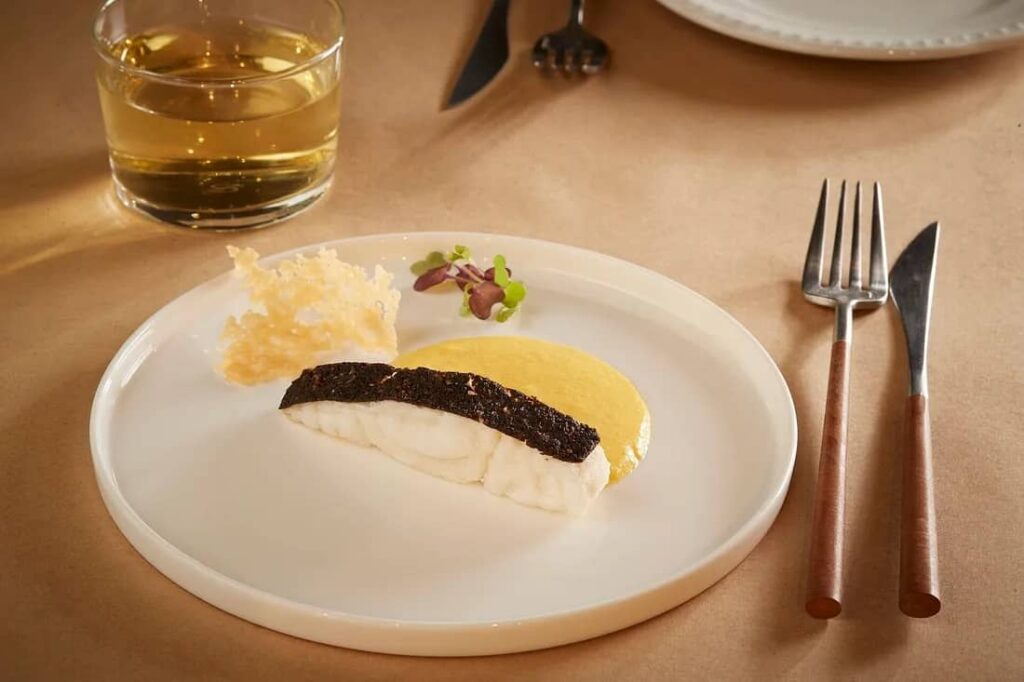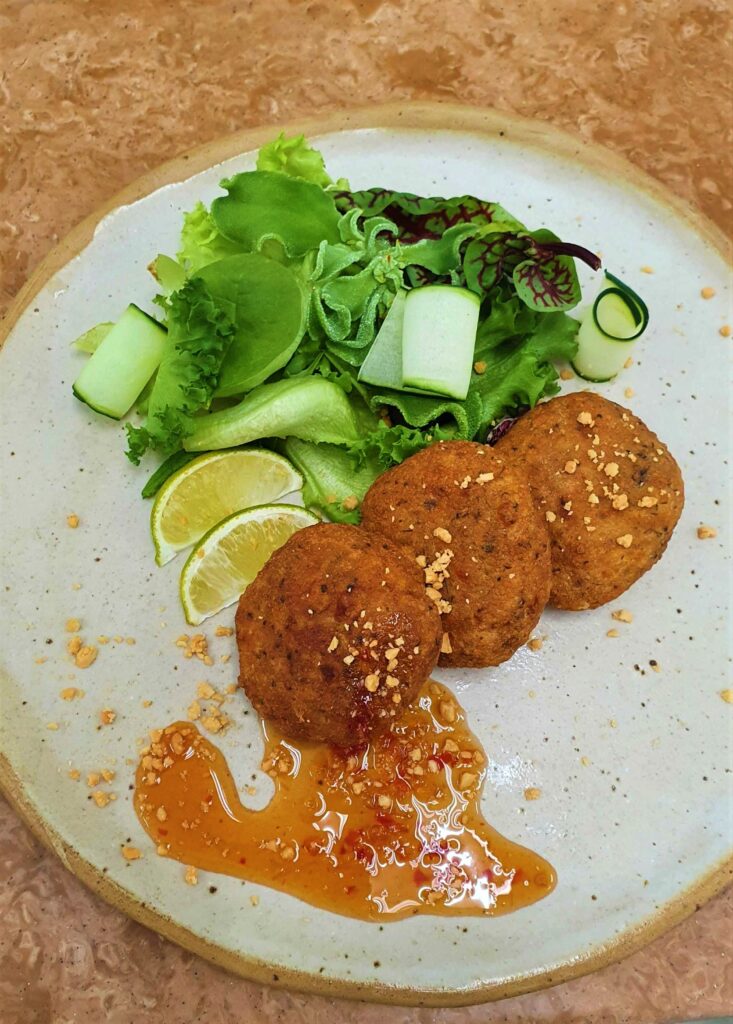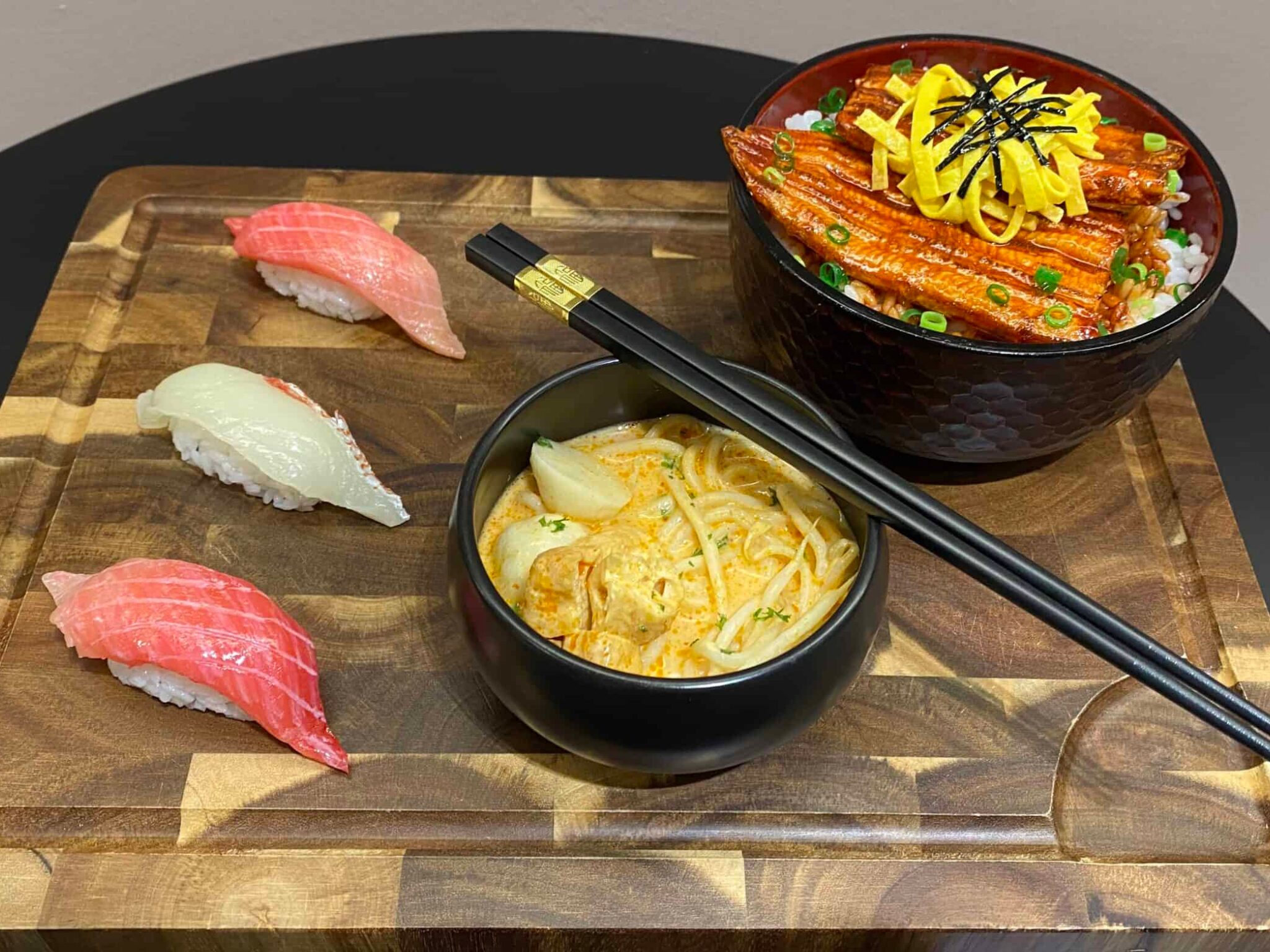Cultivated Fish Producer Courts Seafood Industry with Pathogen Detection Tool
5 Mins Read
Singapore’s Umami Bioworks, which is working on commercialising cultivated fish products, has launched a pathogen detection tool for the seafood industry. Here’s why.
Umami Bioworks, a pioneer in the cultivated seafood world, is taking a dip in rather traditional waters to fix the ailing seafood value chain.
The Singapore-based startup has launched Arbiter, a biotech tool to address the challenges of seafood safety and quality via pathogen detection and quality assessments. The move marks what the company calls a “pivotal expansion” of its biotech offerings beyond cultivated meat and pet food to help a number of industry sectors.
Arbiter is a nucleic-acid-based testing platform that offers “unprecedented precision, speed, and cost-effectiveness with higher sensitivity, breadth, and quantification than current pathogen detection methods”. It can detect up to 800 unique targets in a single run, with actionable results in under six hours.
Apart from equipping seafood companies with the ability to detect pathogens early, it significantly reduces labour intensity, with only 15 minutes of prep time needed for up to 50 samples. Umami Bioworks believes the cost efficacy – each target costs less than $1 – will “democratise and universalise” pathogen diagnostics and quality control.
The company acknowledges that while it’s known for cell cultivation, the tool is a strategic move to establish solutions for broader markets. For example, it claims Arbiter can transform disease diagnosis in species like salmon, shrimp, and tilapia, which minimises economic losses linked to infectious diseases.
In addition to food safety and quality assurance, the tool offers new capabilities for environmental monitoring to protect aquatic ecosystems from harmful pathogens.
We spoke to Mihir Pershad, founder and CEO of Umami Bioworks, about the company’s move, which comes amid its aggressive expansion strategy – apart from Singapore, it either has a base or partnerships in Malaysia, South Korea, India, the US, and the UK, and is pursuing regulatory approval in multiple markets.
Here’s why Umami Bioworks decided to broaden its horizons.
This interview has been lightly edited for clarity and concision.

Green Queen: Why did you decide to launch the pathogen detection tool?
Mihir Pershad: We came up with the idea for this food safety and quality solution to address a problem within our cultivated production platform: how to streamline batch quality and safety testing in a production factory. We developed a highly streamlined solution that would allow us to assess food safety and quality within a single test with significantly higher sensitivity and time to results compared to traditional approaches.
We realised that this solution could potentially address a much larger problem of food safety and quality monitoring if we launched it as an individual product offering, rather than only packaging it with our cultivated production licenses, and so decided to launch Arbiter as an independent product.
GQ: Are you pivoting to serve the seafood industry directly?
MP: Umami’s mission is to serve as a gateway for creating a healthier, more flavorful, regenerative future for humanity where we envision a world in which we can sustainably feed humanity while rewilding 50% of our planet. Thus, we see Arbiter as a new product that falls squarely in the scope of our mission to help build a better food system.
In fact, our core business is delivering cultivated seafood biomanufacturing capability to the traditional seafood industry via a “factory as a product” model. We believe that the cultivated approach to seafood production is critical to achieving our vision, but we also believe we can do a tremendous amount of good by bringing solutions to market that can also improve the efficiency of current production approaches.

GQ: Is this meant as a second revenue stream, in addition to your cultivated seafood goals?
MP: Given the advantages in cost savings, throughput, and time to results, we believe Arbiter is a compelling leap forward in routine food safety and quality testing.
Getting validation and adoption in the market will demonstrate some of the value Umami’s core platform can offer, particularly in areas like quantifying seafood product quality for more robust grading and quality assessments, while building trust with seafood industry customers that Umami can deliver additional value down the road.
GQ: Is the idea that this tech will help convince seafood companies to commit to/invest in cultivated seafood?
MP: As a bioplatform business, our goal is to build multiple product offerings on the core foundation of our platform knowledge, where each product solves a meaningful problem aligned with our company mission.
We certainly believe that Umami can deliver real value to seafood industry customers with Arbiter and that we can address long-standing challenges with pathogen detection and quality verification.
By creating value and solving problems that cross both traditional seafood and cultivated production, we can also build trust with customers, which will be critical as we start to bring cultivated seafood to market at scale.

GQ: Disease detection tech seems quite a different direction in terms of resource allocation and talent requirements than cultivated seafood – what is your strategy for this?
MP: It is true that delivering Aribter capability to customers may require a different commercial approach from selling cultivated seafood factories, but there is more potential for shared resourcing within Umami than is likely apparent.
In fact, food safety and quality testing was a core challenge we had to address to bring cultivated seafood to market. To be able to deliver factories to customers at scale, we also needed to be able to deliver rapid, robust testing capability that could validate the quality of the seafood our factories would be producing.
That insight was what led us to pursue the development of Arbiter, as an internal solution initially and now as an independent product.



